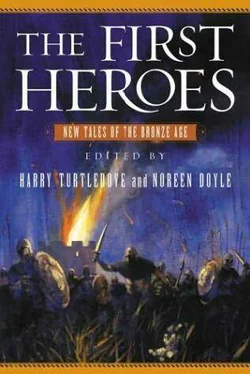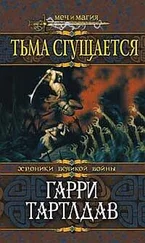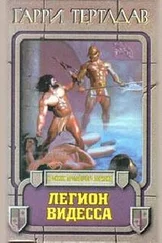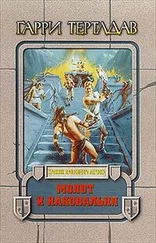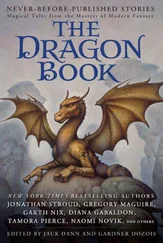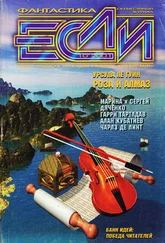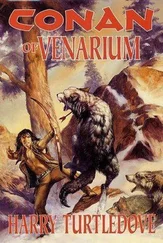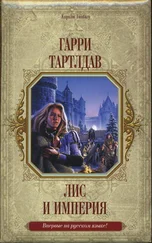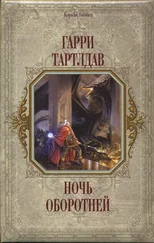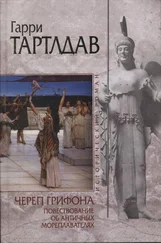Гарри Тертлдав - The First Heroes
Здесь есть возможность читать онлайн «Гарри Тертлдав - The First Heroes» весь текст электронной книги совершенно бесплатно (целиком полную версию без сокращений). В некоторых случаях можно слушать аудио, скачать через торрент в формате fb2 и присутствует краткое содержание. Жанр: Фантастика и фэнтези, на английском языке. Описание произведения, (предисловие) а так же отзывы посетителей доступны на портале библиотеки ЛибКат.
- Название:The First Heroes
- Автор:
- Жанр:
- Год:неизвестен
- ISBN:нет данных
- Рейтинг книги:3 / 5. Голосов: 1
-
Избранное:Добавить в избранное
- Отзывы:
-
Ваша оценка:
- 60
- 1
- 2
- 3
- 4
- 5
The First Heroes: краткое содержание, описание и аннотация
Предлагаем к чтению аннотацию, описание, краткое содержание или предисловие (зависит от того, что написал сам автор книги «The First Heroes»). Если вы не нашли необходимую информацию о книге — напишите в комментариях, мы постараемся отыскать её.
The First Heroes — читать онлайн бесплатно полную книгу (весь текст) целиком
Ниже представлен текст книги, разбитый по страницам. Система сохранения места последней прочитанной страницы, позволяет с удобством читать онлайн бесплатно книгу «The First Heroes», без необходимости каждый раз заново искать на чём Вы остановились. Поставьте закладку, и сможете в любой момент перейти на страницу, на которой закончили чтение.
Интервал:
Закладка:
Quarrelsome, warlike, they nonetheless have a good awareness of the world around them. News travels swiftly from end to end of their lands. It spreads to everyone at the councils and fairs they hold throughout the year. Thus Conomar could name tribes far to the east of his Boii, and others well to the west. Some had settled in great mountains, from which they were spilling south into a land of cities. Some were crossing a river mightier than the Ailavo. All this movement sent tides clashing to and fro among the Celts themselves. Gairwarth's guess had been right, the Boii were at odds with their neighbors on either side, in no mood to make terms with anybody.
Today I am not quite sure whether I found out most of what I am recalling then or later, as shards of knowledge—and often, I suppose, mistakenness—have come to us here at home. Nor do I care. What stands before me is our last encampment with Gairwarth. On the morrow we would reach the estuary settlement and leave him to take passage back with whatever fellow traders touched there. He had become our friend. We broke out the last ale aboard to drink with him. Night fell while we did.
It is as if we sit again around the fire, mingled without regard to birth, for we had become so few and shared so much grief. Horns, filled out of the clay jugs, pass from hand to grimy, calloused hand. Light flickers red across us, then loses itself in the huge dark or the resin-sweet smoke. Wood crackles, spitting sparks. I remember nothing we said, only that it was slow and comradely, save for this: Gairwarth leaned toward me and asked, "What will you do with him?"
The prisoner sat apart, still hobbled, now leashed to a tree. At Gairwarth's rede we gave him a share of the drink. He surprised us by muttering a sort of thanks. He had already begun to pick up our tongue. "Keep him," I answered. "What else?"
Gairwarth lowered his voice. "Do you think kindlier of him than before?"
"Well, not very, but we can find work for him, and anyhow, I wouldn't butcher a helpless man."
"He isn't. Havakh, do not, not take him into your household, whether as slave or freedman. He's grow n more careful, but—I know his breed, and I've gained some feeling of him as a man—he lives for revenge. Someday, somehow, after as many years as need be, he'll take it, on you or on someone dear to you."
I shivered slightly, though the night was forest-warm. "Do you truly think so? Then how should I handle him? Let him go? Wouldn't that be to loose a wolf on the dwellers along his way?"
While we spoke softly, to make sure Conomar wouldn't guess what we said, others nearby heard.
Ernu broke in. "Ah-um! Lord, why not give him to me? I'll take good heed of him, I will."
We stared at him. He grinned. "Away off in the bogland, how could he hurt you or yours, lord? We've use for every pair of hands, we poor folk. If he took flight, he'd soon be lost, but we'd track him down, and if he'd killed, we'd make him sorry. Not that I'm afraid he would. Better a life amongst us than penned up at the great hall, no? Why, he might earn himself a woman."
I glanced toward Gairwarth, who spread his hands to show that he couldn't judge.
"You promised me reward, over and above those bronze tools and cloth, after I saved your life, lord," wheedled Ernu. "This'd be a lordly gift, and rid your dear ones of a danger too, I make bold to say."
Yes, shrewd, I knew. He listened closely indeed. My gaze sought to the captive. Dooming him to such wretchedness—and yet not to full un-freedom—a vengeance of my own, of which I need not be ashamed? "I will think about it," I said.
But when at length I agreed, I had so much else on my mind that it was almost carelessly.
We did not linger after we left Gairwarth off, for there was a tide we could catch and a hunger in our hearts. The sea voyage was hard only because we were undermanned. When at last we drew up on our own strand and saw our own folk eagerly gathering to meet us, it was such an utterly lovely late-summer day that for that short span I, at least, forgot this was a sorrowful return.
Sunlight struck dazzlement from water and tall white clouds. Surely nowhere else in the world were grass and leaves as green. Wavelets clucked, fowl mewed and cried, and on the holy hilltop the trumpeters sang welcome. In the gentle weather, several well-born maidens had put on a garb seldom worn anymore, close-fitting knit bodice, bronze beltplate disc, and string skirt ending well above the knees. Great sheafs of fair hair tumbled over their shoulders, down past their breasts. Suddenly, shakingly, I kenned one among them, daughter of a goodly house, Daemagh her name.
I have always been glad that my lady can talk with anyone, man or woman, high or low, readily and wisely. Never has this served us so well as today. Lost in memories, I am barely half aware of the feast and the company, barely able to give some kind of reply when somebody speaks to me. Her flowing words and sun-bright smiles draw their heed. Thus I dare hope that they little mark my withdrawnness.
She does. I see her glance flit across me whenever it can without betraying the trouble in her. She wonders what has gone wrong. I do myself. Why should a small surprise, the appearance of Ernu and Conomar after all these years, during which I scarcely ever gave them a thought, why should it cast my soul back through time? Does something in me—a ghost out of the Otherworld?—sense that this meeting may be fateful, and seek to learn how it has come about? I sit cold and alone, hosting the sun-feast.
Yet it clatters on, horns and trenchers, chatter and laughter, gossip and tales, while youths and maidens look at each other and forward to tonight, and meanwhile sunlight streams in the open doors to glow on gold and amber and brightly dyed garb. And slowly the spell on me fades, like dawntide fog giving way to clear morning. Little by little I come back to myself and the now. It is as if I must call up each happening of long ago, but once I have done so, it lets go its hold on me.
Or could it simply be that when I was reminded, that wakened a powerful wish to recall? Old men dwell much on the past, and I am no longer young. Surely a high holy day is a time for remembering friends who are gone: Herut, Athalberh, my elder brother who had so briefly held this seat that was our father's—
The guests rise, the trestle tables are cleared away, a hush falls. I go to the hearthstones and bless the dying fire. Two of my daughters bring a tub of ashes from former years. With beechwood scoops they gather today's and the embers and bear them off. At sunset I will make our needfire, and with a torch from it light the balefire, as balefires will be lighted everywhere over the land. The great and solemn moment sets me wholly free of my ghosts.
Daemagh and I return to the high seat. "Are you well?" she murmurs.
"I am again," I reply, also softly. "I went. . . dreamy for a span, but that's over with."
Her forefinger draws the branching sign of Mother Yortha. "May it never come upon you again. I was afraid for you."
"I don't believe it was anything to fear," I tell her and myself. "This is a good midsummer. Not like those our forebears knew, but better than many we've seen. We can hope it bodes well."
We take our seat, side by side. Our guests bench themselves along the walls, cheerful and expectant.
Their gifts have been laid there, often wrapped in cloth, and now most of them take these things onto their laps. Serving wenches go about refilling their horns. Manservants bring mine in and stand holding them. I say my words, Daemagh says hers, and the giving begins. One by one, in order of rank or, for equal rank, age, the heads of households come up for their little speeches and their presentations, amber lumps, pelts, hides, carved tokens, meaning that a horse or a cow is tetheredoutside—no surprises, merely the best they can offer in these lean times. Mine to them are likewise traditional, bronze knives and ornaments, cloaks, tunics, well-made harness, a goblet from abroad that the dwindling trade has carried this far—the best I too can bestow, meager though my father would have reckoned it. So do we renew the ties that have held us together from of old.
Читать дальшеИнтервал:
Закладка:
Похожие книги на «The First Heroes»
Представляем Вашему вниманию похожие книги на «The First Heroes» списком для выбора. Мы отобрали схожую по названию и смыслу литературу в надежде предоставить читателям больше вариантов отыскать новые, интересные, ещё непрочитанные произведения.
Обсуждение, отзывы о книге «The First Heroes» и просто собственные мнения читателей. Оставьте ваши комментарии, напишите, что Вы думаете о произведении, его смысле или главных героях. Укажите что конкретно понравилось, а что нет, и почему Вы так считаете.
